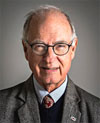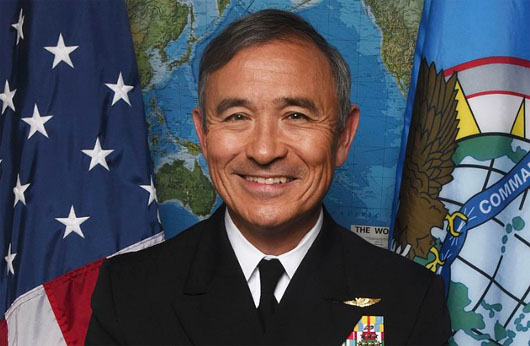Special to WorldTribune.com
 By Donald Kirk
By Donald Kirk
The U.S. ambassador to the Republic of Korea, Harry Harris, has one of the world’s more sensitive diplomatic missions. He’s got to defend the U.S.-Korean alliance while getting along with a government that’s dedicated to appeasing a North Korean regime that’s hostile to the U.S. and South Korea.
The role would be difficult for the best, most experienced of diplomats, but Harris came into his position in June of 2018 with zero diplomatic experience.

The timing was extraordinary, just days after President Donald Trump sat down in Singapore with North Korea’s Kim Jong-Un for a summit that achieved maximum global publicity with minimum results. No, North Korea would not give up its nuclear warheads, or stop producing them, despite a Trump-Kim joint declaration that spoke vaguely of denuclearization of the Korean peninsula, not North Korea. Yes, the summit did achieve one negative result: Trump right afterward called off annual joint exercises involving U.S. and South Korean troops without bothering to inform his defense secretary, Jim Mattis, a former marine general who would have advised him of the need for troops from the two countries to gain experience operating together.
Having retired as the admiral in command of U.S. forces in the Pacific, Harris is well aware of the importance of war games. He would be keenly attuned to the danger of the alliance falling apart in prolonged negotiations between the U.S. and South Korea on the South’s contribution to keeping America’s 28,500 troops in Korea. He also has to have opinions about relations between Japan and South Korea, including intelligence-sharing under GSOMIA, the General Security of Military Information Agreement that Moon wanted to dissolve but reluctantly agreed to maintain under pressure from Mattis’ successor, Defense Secretary Mark Esper.
The problem is that Harris, for all his skills at rising to the top of the military hierarchy, is no diplomat. He was to have retired gracefully as ambassador to Australia, a friendly like-minded ally where he would have gotten along just fine, but instead was named to his present post in view of the need for someone who knew the area and the issues. Secretary of State Mike Pompeo, who had called for the switch from Australia to South Korea, saw him as highly qualified to advance the American position with a government filled with leftists who had once opposed the alliance as student protesters.
The task was critical since the U.S. had not had an ambassador to South Korea after the departure of Mark Lippert a full 18 months earlier. A protégé of Trump’s predecessor, Barrack Obama, Lippert had served on the National Security Council and in the Pentagon before coming to Seoul. While in Korea he had been quite popular, his image enhanced as a result of a knife attack by a leftist fanatic that had left him with a gash in his right cheek that required 80 stitches to sew up.
An outgoing type, Lippert knew how to get along with just about anyone. So did the deputy chief of mission, Marc Knapper, who filled in as charge d’affaires of the U.S. embassy while the ambassador’s post was vacant. No idea why Knapper wasn’t eligible to become ambassador, but he remains influential as deputy assistant secretary of state for Japan and Korea.
Unlike Mark and Marc (one spells his first name with a “k” at the end, the other with a “c”) and the others before them, Harris has been oddly outspoken. Most recently, days after President Moon Jae-in in New Year’s remarks had expressed hopes for resuming tours to North Korea maybe on an individual basis, Harris warned publicly of the dangers of violating sanctions. He talked vaguely of the need for such decisions to go through some sort of joint committee, obviously a device for high-pressuring Koreans.
As Harris remarked, “President Moon’s continued optimism is encouraging, but with regard to acting on that optimism, I have said that things should be done in consultation with the United States.” To which a Moon official countered, it was “very inappropriate for the ambassador to make such a mention in the media over remarks by the president of the host nation.”
The problem with Harris’ comments is they seemed like a direct, open rebuttal of Moon’s wishful thinking. Now he’s got a reputation as controversial, maybe insensitive to the reactions that he’s creating. On top of all else, after four decades as a clean-shaven naval officer, he’s grown a mustache. The son of a Japanese mother and a career U.S. navy man, he bears a certain resemblance to the late Japanese Emperor Hirohito or even, God forbid, the reviled war-time Japanese leader, Hideki Tojo, both of whom were mustached.
Harris’ mustache may make for fun stories, but Trump’s demands for South Korea to pay much, much more for U.S. defense are creating still more confusion. The U.S. command has just sent notices to 9,000 South Koreans working on U.S. bases that they may be laid off by April if the funding stops.
Trump may believe he scored a breakthrough by seeing Kim three times, but the happy talk has gotten nowhere. Harris’s job is not made easier by the fact that no one knows where Trump is going on Korea, North or South, what he will do or say next. Under fire from the media and Moon’s people, Harris as a military man may decide the best course is to keep his head down.
